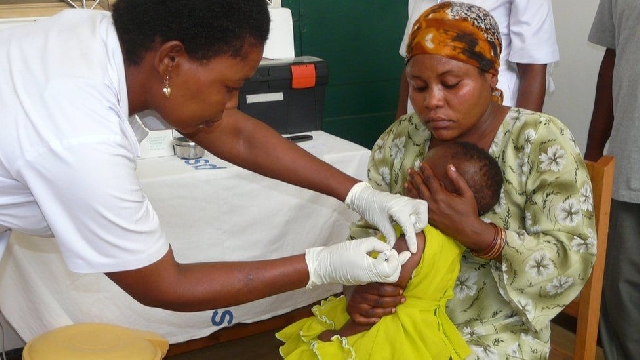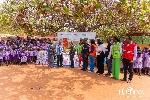N/R tops list of children not fully vaccinated
 The GSS statement emphasised that in the Northern Region, 9.0per cent of children aged 12 to 23 months have not received any vaccination
The GSS statement emphasised that in the Northern Region, 9.0per cent of children aged 12 to 23 months have not received any vaccination
The recently released 2022 Ghana Demographic and Health Survey (GDHS) Key Indicators Report has revealed that 40 per cent of children aged 12 to 23 months in Ghana have not received complete vaccinations as per the national schedule.
The Northern Region has emerged as a hotspot of worry, recording the highest rate, with a staggering 70.8 per cent of children in this age group not being fully vaccinated.
According to the Ghana Statistical Service (GSS), the Western and Savannah regions follow closely, with 60.9per cent and 58.4 per cent of children, respectively, not fully vaccinated.
The GSS statement emphasised that in the Northern Region, 9.0per cent of children aged 12 to 23 months have not received any vaccination, a figure almost five times the national average of 2.0 per cent.
The GDHS report also delves into the nutritional status of children under 5 years old, revealing that 17.5 per cent are stunted (low height-for-age), 12.5 per cent are underweight (low weight-for-age), and 6.0 per cent are wasted (low weight-for-height).
The Northern and North East regions top the list with the highest rates of stunting, underweight, and wasting.
The report further highlights the prevalence of anaemia among children under five, indicating that a concerning 49.0 per cent of them are affected. Within this group, 21.1 per cent are moderately anaemic, and 0.8 per cent are severely anaemic.
The Northern and Upper East regions again stand out with the highest rates of anaemia, affecting seven in every ten children under five.
These findings underscore the urgent need for targeted interventions to address the vaccination gap and improve the overall health and nutritional status of Ghana's young population.
Health authorities and policymakers are urged to prioritise strategies that ensure comprehensive vaccination coverage and address the regional disparities in healthcare access and outcomes.
Source: classfmonline.com/Elikem Adiku
Trending News

Ato Forson warns Akufo-Addo gov't of accountability for unmet January commitments
17:39
Alarm blows over Boahen Aidoo-led COCOBOD rush to pay over US$13m to fertiliser supplier
19:57
A Rocha Ghana refutes EPA claims on forest reserve mining regulation repeal
01:34
GIGS condemns EC over results re-collation
16:06
Lordina Foundation brings Christmas joy to orphans
15:21
W/R: Police investigating damage caused to Akufo-Addo statue, seeking out perpetrators
00:48
Mahama’s anti-corruption team introduces public reporting channels to enhance accountability
10:49
Man arrested for vandalizing vehicles at Parliament House
14:41
Africa must lead future tech revolutions – Npontu and eTranzact CEOs
17:42
KIA E-gate system didn’t cost $240 million – GIS
08:38




